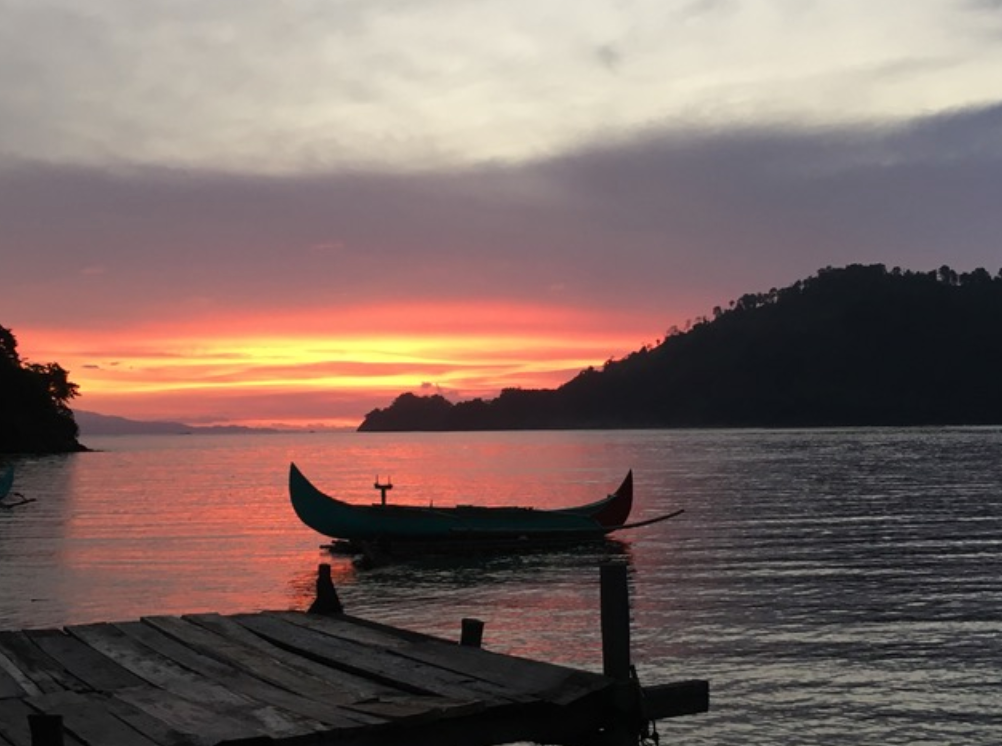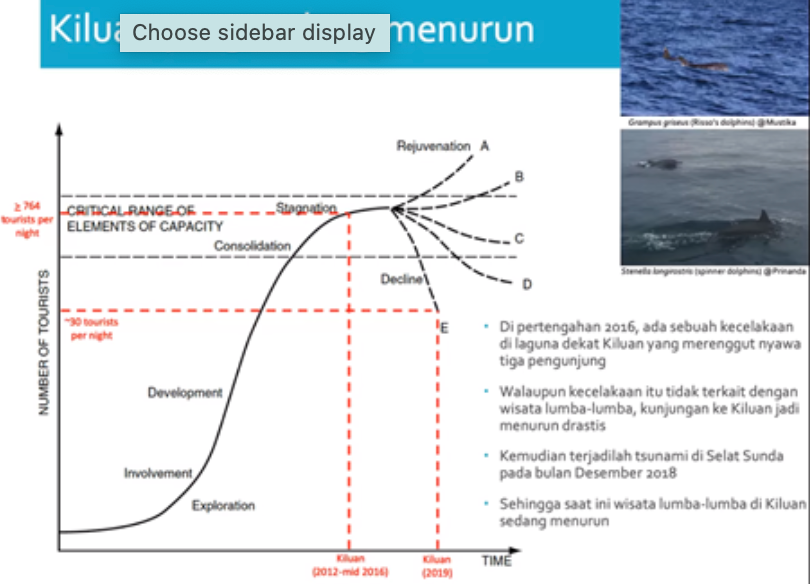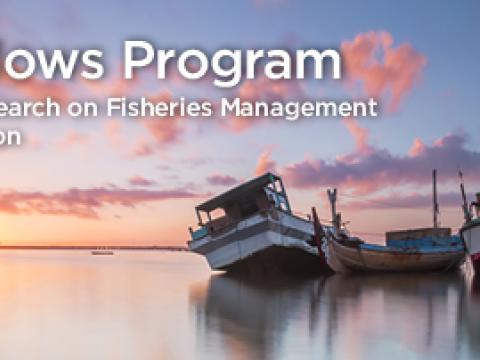Alumni Spotlight: Putu Liza Mustika and the Economic Value of Dolphin Tourism in Kiluan Village
Kiluan is a small fishing village in Lampung Province, Indonesia, which lies at the southern tip of the island of Sumatra. Over the last decade, a community-based dolphin-watching industry has developed there in large part due to Kiluan’s native populations of small cetacean species, including the spinner dolphin and the Risso dolphin. Like many villages across Indonesia, marine-based tourism has become an increasingly vital sector of the local economy, and in Kiluan village, dolphin-watching tourism has emerged as a particularly lucrative side of the tourist industry.

As a native of Kiluan village, Putu Liza Mustika wanted to better understand the impact of marine-based tourism to her local community. Through Conservation Strategy Fund’s second Marine Fellowship Program, Mustika was able to conduct critical research on the economic value of dolphin-watching tourism with guidance from her CSF staff and mentors. Mustika’s study, “The economic contribution of dolphin-watching tourism in Kiluan, Lampung, Indonesia,” examined the current state of the Kiluan dolphin-watching industry and answered several key questions abouts its future.
Through her research, Mustika sought to identify the revenue generated by the dolphin-watching industry and to determine whether the industry was sustainable in the long term. She found that creating a sustainable dolphin-watching industry in Kiluan village was possible, but it required the collaboration of all community stakeholders — from local tour guides to homestay hosts. In order to create an equitable and sustainable environment for dolphin-watching tourism, Mustika then developed a set of recommendations for monitoring future tourist activity.
Through the targeted regulation of tourist activities on all dive sites, Mustika concluded that Kiluan could minimize the negative impacts of tourism on dolphin habitat in the region and still create a sustainable tourist industry. To accomplish this, Mustika suggested the development of a required training series for all local tour guides to ensure the safety of both tourists and dolphins alike. Mustika also recommended that the community integrate dolphin-watching tourism with other tourist activities in the region to create a more sustainable framework for the regulation of marine traffic. For example, by combining dolphin tours with diving tours, Mustika found that the village could reduce the issue of boat-crowding in dolphin habitat.
Mustika shared this exciting research with local stakeholders through a live-webinar event in September of 2020. The event was well attended with representatives from the local marine and Fisheries agency (Dinas Kelautan dan Perikanan Lampung), the local tourism agency (Dinas Pariwisata dan Ekonomi Kreatif Lampung), non-governmental organizations, and prominent university lecturers. In particular, participants were interested in understanding Mustika’s roadmap for sustainable dolphin-watching tourism and eager to hear her recommendations for how to implement a more effective strategy for tourism in the region.

This Marine Fellowship Program is made possible with generous support from the David and Lucile Packard Foundation. To learn more about Mustika’s research, read this story about her field research, and this article from The Cetacean Sirenian Indonesia.
- Log in to post comments

